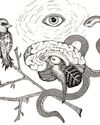
Abortion is the deliberate termination of a pregnancy. In current practice, this involves the death of the foetus. Consequently, the debate on whether those experiencing an unwanted pregnancy have the right to abortion is usually dichotomized as a matter of pro-choice versus pro-life. Pro-choice advocates maintain that abortion is acceptable under various circumstances. The idea that we ought to respect pregnant people’s rights to choose what to do with their bodies – respect for bodily autonomy – is cited as a major reason for granting them abortion rights. Pro-life advocates, on the other hand, claim that abortion is not acceptable under most circumstances. They argue, typically, that the fetus has a right to life. Recent events, such as Poland’s High Court decision in October 2020 to ban most abortions, and the huge protests and outcries this generated around the world, indicate that the abortion debate is far from resolved.
Artificial Womb Technology
Presently, most research on artificial womb technology is funded to tackle health complications caused by premature birth. But artificial womb technology may one day make gestation outside of human bodies possible. This will have radical implications for the abortion debate.
Denne historien er fra June/July 2021-utgaven av Philosophy Now.
Start din 7-dagers gratis prøveperiode på Magzter GOLD for å få tilgang til tusenvis av utvalgte premiumhistorier og 9000+ magasiner og aviser.
Allerede abonnent ? Logg på
Denne historien er fra June/July 2021-utgaven av Philosophy Now.
Start din 7-dagers gratis prøveperiode på Magzter GOLD for å få tilgang til tusenvis av utvalgte premiumhistorier og 9000+ magasiner og aviser.
Allerede abonnent? Logg på

Anselm (1033-1109)
Martin Jenkins recalls the being of the creator of the ontological argument.

Is Brillo Box an Illustration?
Thomas E. Wartenberg uses Warhol's work to illustrate his theory of illustration.

Why is Freedom So Important To Us?
John Shand explains why free will is basic to humanity.

The Funnel of Righteousness
Peter Worley tells us how to be right, righter, rightest.

We're as Smart as the Universe Gets
James Miles argues, among other things, that E.T. will be like Kim Kardashian, and that the real threat of advanced AI has been misunderstood.

Managing the Mind
Roger Haines contemplates how we consciously manage our minds.

lain McGilchrist's Naturalized Metaphysics
Rogério Severo looks at the brain to see the world anew.

Love & Metaphysics
Peter Graarup Westergaard explains why love is never just physical, with the aid of Donald Davidson's anomalous monism.

Mary Leaves Her Room
Nigel Hems asks, does Mary see colours differently outside her room?

From Birds To Brains
Jonathan Moens considers whether emergence can explain minds from brains.